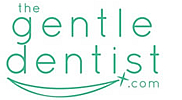Question: My friend has been stricken by cancer and the doctor told her that she needs to see her dentist to get her ready for her cancer treatment. Why is it necessary for the dentist to get involved?
Answer: Cancer is the second leading cause of death in the United States. Patients treated with chemotherapy and head and neck radiation therapy suffer oral complications from these treatments. The dentist is responsible for detecting and treating all active and potential sources of oral infection, in addition to providing follow-up care for the patient, in the manner that does not delay the treatment of the cancer.
During cancer treatment the objective is to kill off rapidly growing cells in the body. The chemotherapy drugs don’t recognize just the cancer cell tissue, but destroys all of the rapidly growing cells including cancer cells, white blood cells (defensive system) hair follicle cells, oral mucous glands and many other cells.
It is important for the dentist to treat potential infectious areas because of the fact that the bacteria in the mouth will infect the mouth when the defensives are weakened which takes place during chemotherapy. The most common problems faced are mucositis which is a swelling and ulceration of the lining of the mouth. This is very painful and the best way to reduce its effects are to have good oral hygiene and treat any pre-existing or potential oral infections or trauma.
The other problem that takes place is an extreme dry mouth. Cavities become evident and increase dramatically when the saliva is reduced to the point of having none at all. Saliva is the natural protective layer that not only lubricates the mouth, but prevents cavities and disease.
It is critical to maintain oral hygiene using a very soft toothbrush (Butler Ultra-soft brush) and using Biotene dry mouth toothpaste. There are artificial saliva substitutes such as OraLube, Glandosane and Salivart which help with re-moisturizing the mouth.
Before the beginning of treatment your dentist should be in contact with the oncology physician and create an aggressive plan to treat cavities, extract infected teeth and treat gum disease. If the chemotherapy is started when underlying infections are present in the mouth they will become significant problems during treatment. If you have questions please call the office at 586.573.4500.
